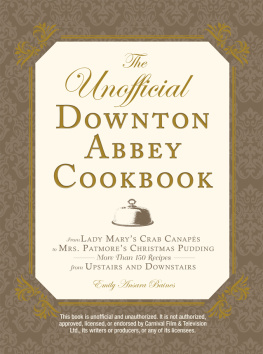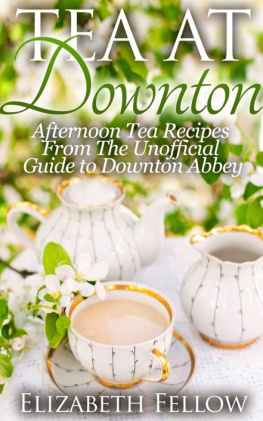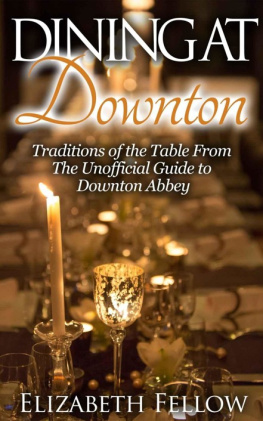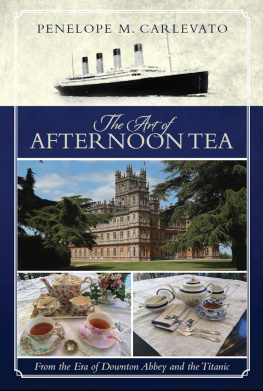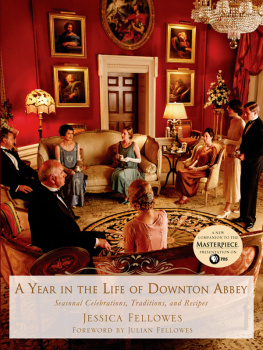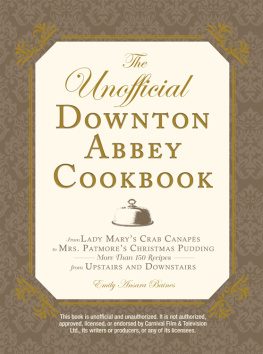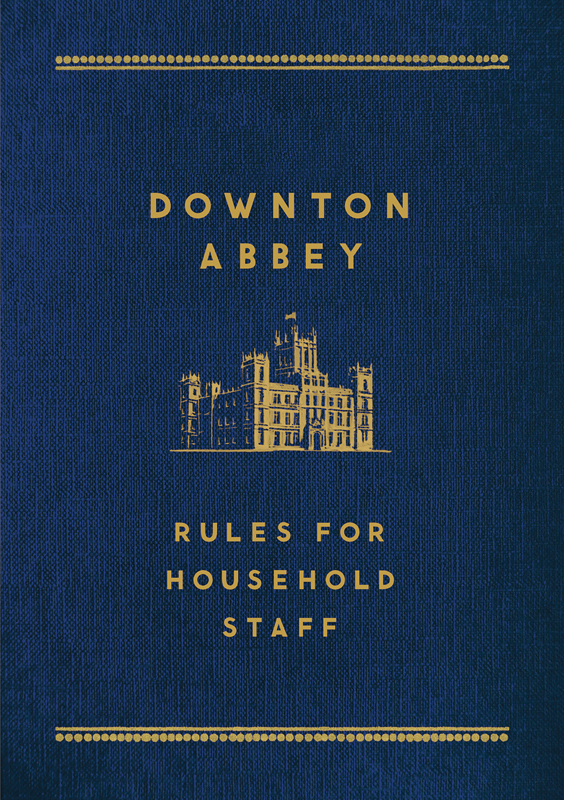Contents
Guide

The author and publisher have provided this e-book to you for your personal use only. You may not make this e-book publicly available in any way. Copyright infringement is against the law. If you believe the copy of this e-book you are reading infringes on the authors copyright, please notify the publisher at: us.macmillanusa.com/piracy.
CONTENTS
CONTAINING THE MOST
APPROVED DIRECTIONS
AND GUIDANCE FOR STAFF IN EVERY STATION WITHIN THE HOUSEHOLD IN ORDER TO DISCHARGE THEIR DUTIES
CORRECTLY & WITH EFFICIENCY.
WITH
PARTICULAR INSTRUCTIONS
FOR THE :
BUTLER
HOUSEKEEPER
COOK
VALET
LADYS MAID
FOOTMAN
HOUSEMAID
KITCHEN STAFF
AND INCLUDING
USEFUL INFORMATION
ON TRIED AND TESTED METHODS FOR ALL .
Nothing can be more discommoding in life to an orderly person than to enter a house, whether as a guest or a member of staff, without a proper knowledge of how things are managed there. As we all know, to be wrongly dressed is to ruin ones enjoyment of a party, and to be unconscious of the rules that are observed by a household is to render oneself a clumsy outsider, open to the derision of others and the just accusation of amateurism.
To avoid this, I have thought fit to assemble this little book of suggestions that I hope the aspirant servant, either at Downton Abbey or elsewhere, may find informative and useful. I say aspirant because I write only for those employees who aim for the highest standards, who wish to master their chosen career to the satisfaction of all they come in contact with. Such has been my own ambition.
To be a servant, in my view, is a noble calling. I do not suggest that every Hall Boy who starts out blacking boots can expect to be the Butler of a great house, although some must achieve it, nor will every girl be a Ladys Maid to a peeress or a Cook for Crowned heads or run the house of a political leader although, again, some will. But even those who do not reach these heights can feel proud that the goal of service is to smooth the paths of others, to free them from care and leave them calm and able to devote their talents and education to the general good. Like doctors and nurses, we heal and make well lives that can be fraught with worry and responsibility, we make entertaining a pleasure, motherhood a joy, by taking on the elements of those roles that can be tiring and stressful. The Cook, the Nursemaid, the Valet, the Footman, the Gardener, can all lay claim to being Improvers of Life, an honour in itself.
I have been called a hard task-master and I do not shirk the charge. My first job was as a Junior Hall Boy at Thrushcross Grange near Ripon, where I arrived in 1870 at the age of fourteen. I found myself under the command of a Mr Alfred Beet, the sternest Butler I have ever encountered, but also in retrospect one of the fairest, a man of the highest possible standards who took pride in every challenge. He was certainly as hard a task-master when it came to his own work as he was with his team, nor can I pretend my efforts always pleased him. Manys the clip round the ear I can still feel for an un-shone shoe or a mis-ironed newspaper, but his approval, when it came, was a prize in itself which kept me going the whole day long, and I have tried to make him my model in the years since then. Under his stern tutelage, I progressed from Hall Boy to Nursery Footman, and then to Fourth Footman in charge of old Mr Earnshaws clocks, but at last it was time to leave and at nineteen I took a position as Second Footman to the Earl of Grantham at Downton, where I have remained for the rest of my working life. The end of my term at the Grange was an important step for me and I can still remember Mr Beets speech when we parted. I am pleased to say that you understand the duty of service, Mr Carson. You know the good it can do, and you take pride in that knowledge. God bless you. The memory of that moment, I freely confess it, can still bring a tear to my eye. His words have stayed with me throughout the years, providing both discipline and solace through good times and bad, and I can only recommend them to anyone who seeks to enter our ancient, and honourable, profession.
Charles Carson
Butler to the Earl of Grantham
Downton Abbey
August 1924
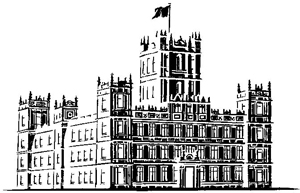
These are clear instructions for Downton Abbey staff in order to carry out their tasks in the most expeditious and satisfactory fashion. Compiled as an exhaustive set of rules for the newest, most inexperienced members of staff, it is recommended that even the most seasoned servants reacquaint themselves with these accurate directions from time to time.
Read not merely the directions under your own job title because there are some duties which are common to different servants, and you may find the information contained in these other sections useful in completing your own tasks. Particularly so in the event that another staff member is taken ill or indisposed, and you are asked to assume their responsibilities. Furthermore, reviewing the entire contents of this book will greatly assist you to understand your place in upholding the high standards of this household.
Lord and Lady Grantham take great pride in their estate, and servants are expected to show that same pride when carrying out their work because they are part of the estate and its ambassadors among servants from other households. Above and below stairs, we all share the duty of keeping the house in good order, something we expect to be passed on to generations to come. It is only by everyone understanding their role and discharging their daily duties efficiently that this will be achieved.
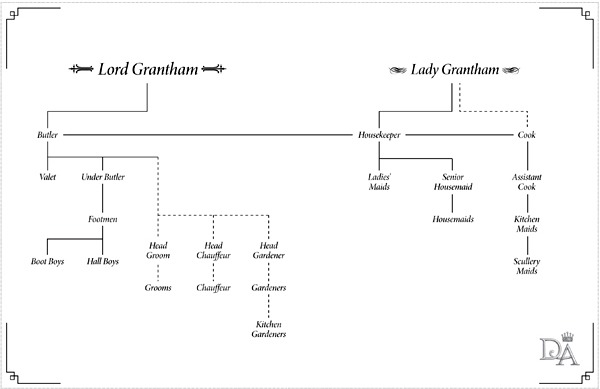
SERVANTS QUARTERS
We regard Downton Abbey as not just the home of the Crawley family, but also of the servants. It is a large house and estate where the servants live and work, and the Crawleys wish to be fair employers. The servants quarters and rooms are maintained by the Housekeeper and the family will not choose to enter these areas unless there are exceptional circumstances. There are also cottages on the estate which may be granted for married couples to occupy in very exceptional circumstances but marriage, while in service, is not encouraged because it will thwart advancement.
THE BENEFITS OF EARLY RISING
Early rising is an essential requirement of service, allowing you the chance to discharge the heaviest duties while the family are still asleep. In order to attend your duties well, they should be carried out at correct times and in the proper order. Without proper order, you shall inevitably lead yourself to a state of haste and confusion.
One can accomplish more work in one hour before the family are up than in two afterwards. By rising early, you secure the earliest opportunity of doing the dirtiest part of your work without interruption. It is extremely necessary to dress for purpose of the most unclean jobs, and never do so in the livery in which you attend to ladies and gentlemen of the house.
PERSONAL CLEANLINESS
Cleanliness with respect to the body
Cleanliness is the principal duty for all persons, because an unclean, or grimy, person is never of full health. Thus let the body be frequently washed with pure water, especially in summer when perspiration can be of a particularly clammy and malodorous nature. It is particularly necessary in hot weather to attend regularly to the armpits and feet as they perspire more.



